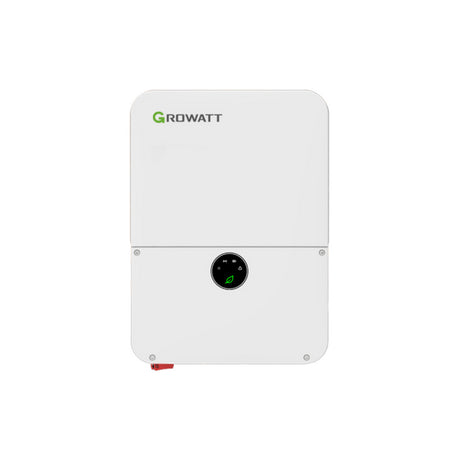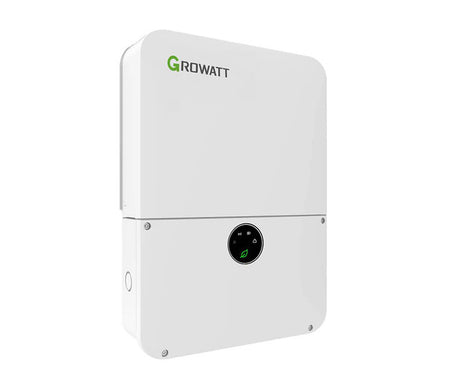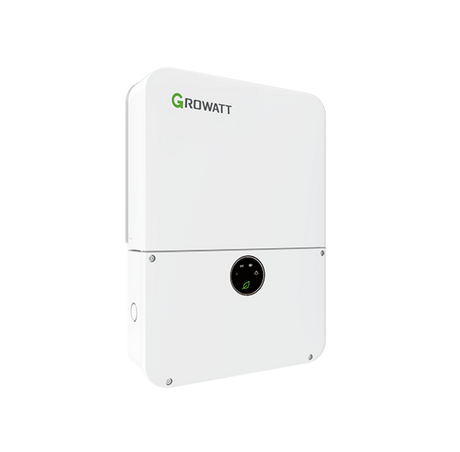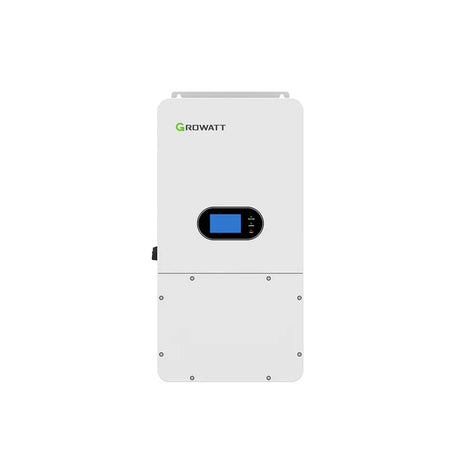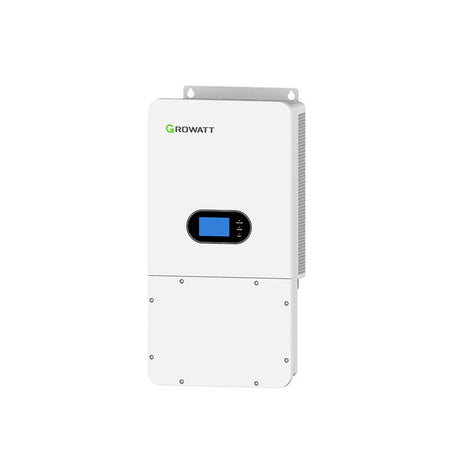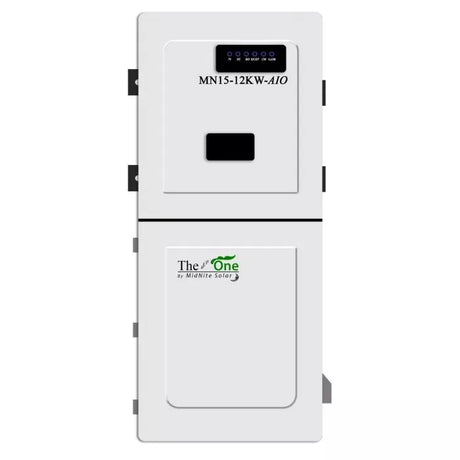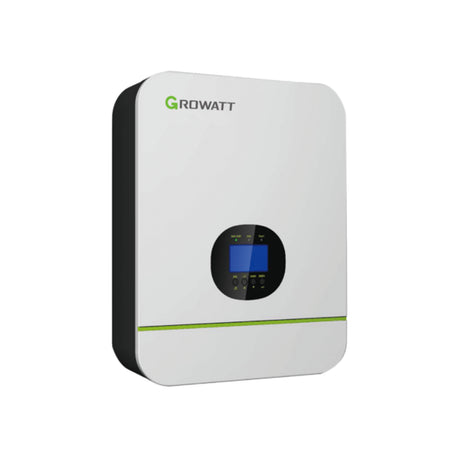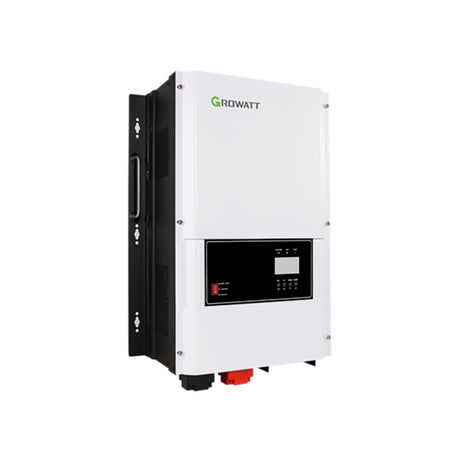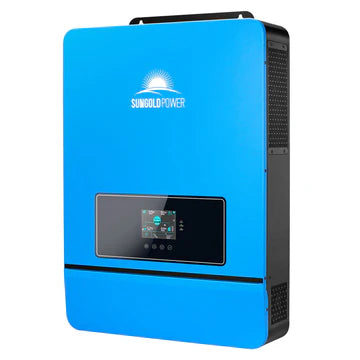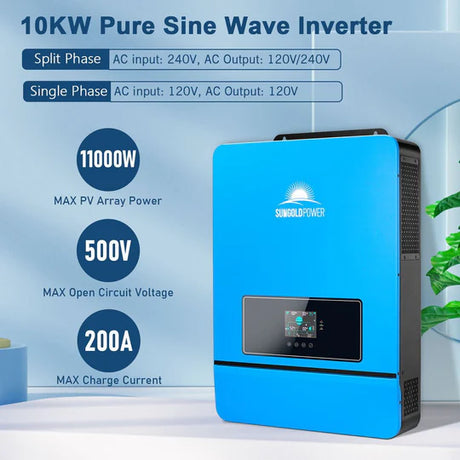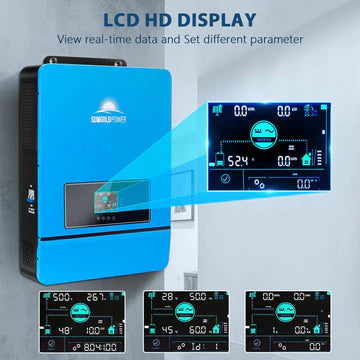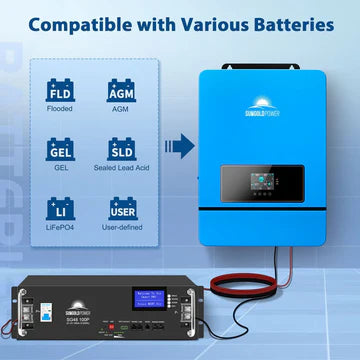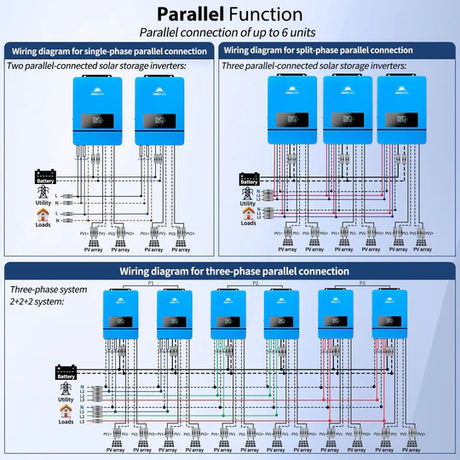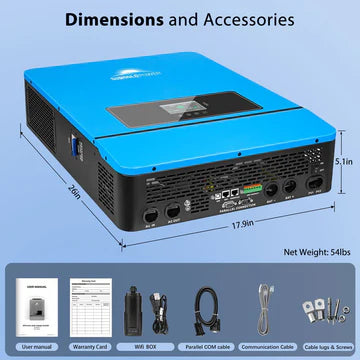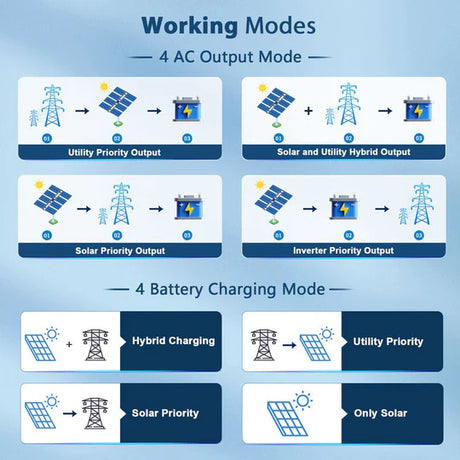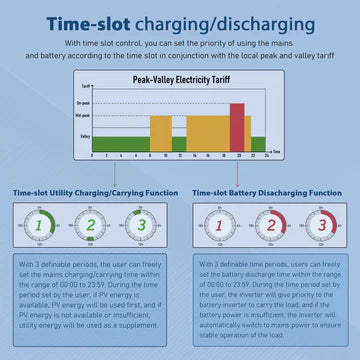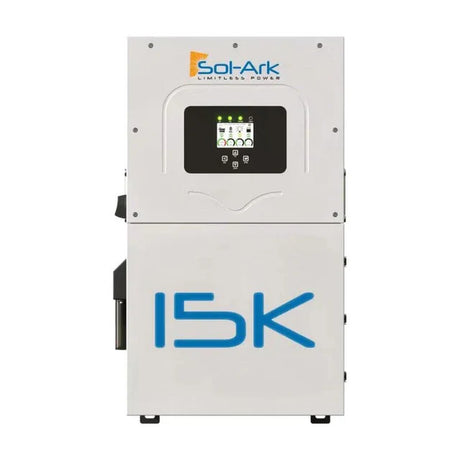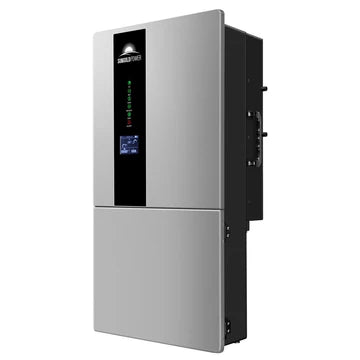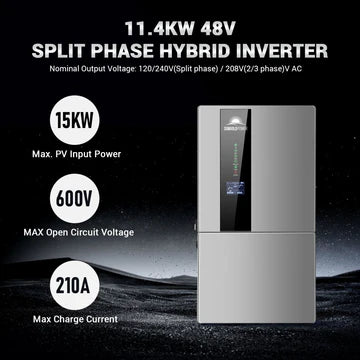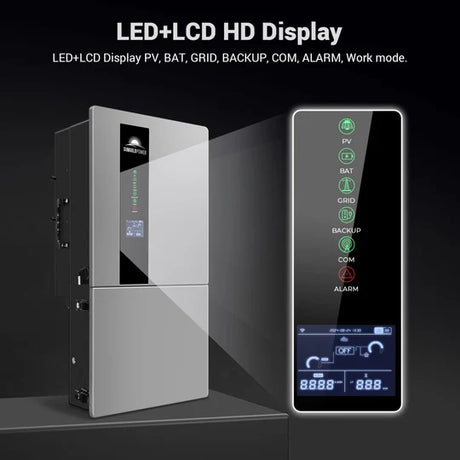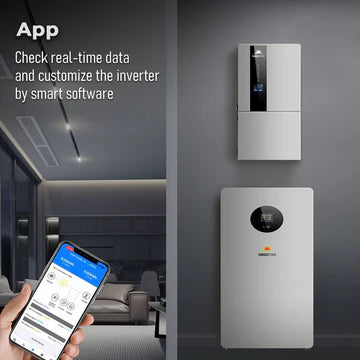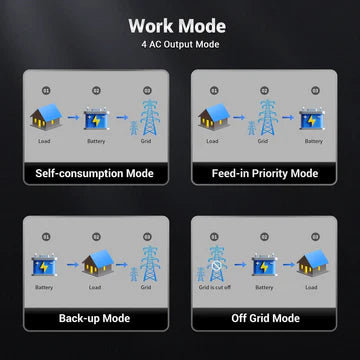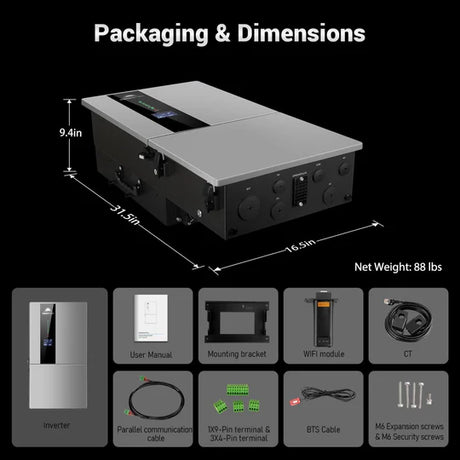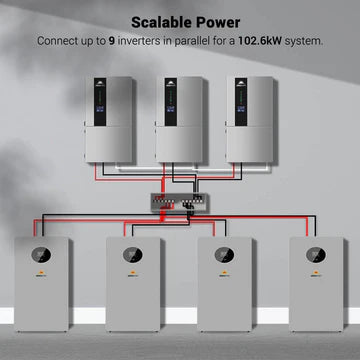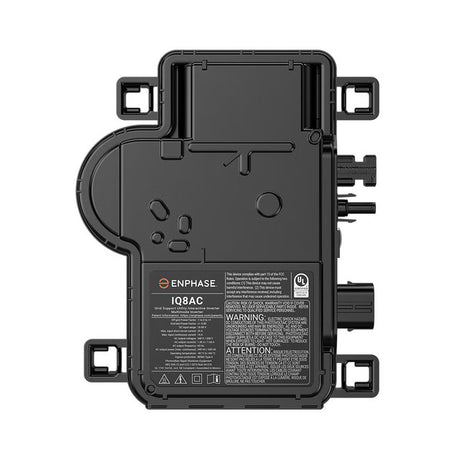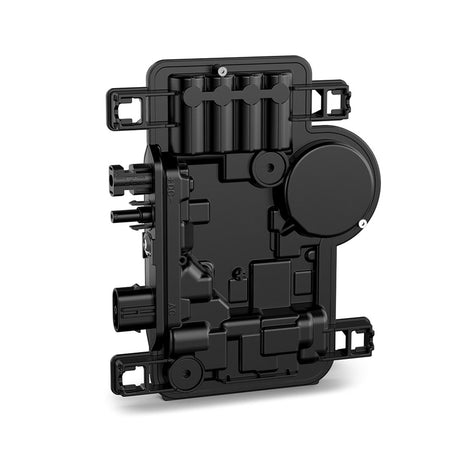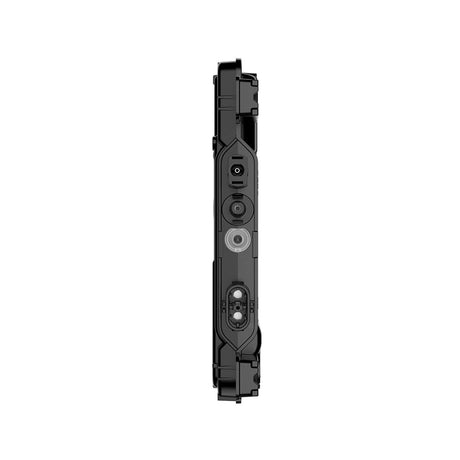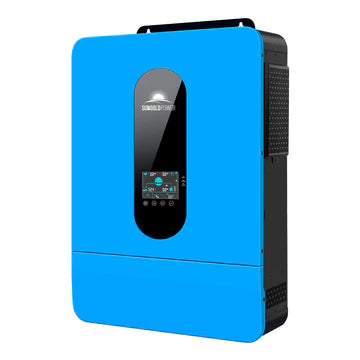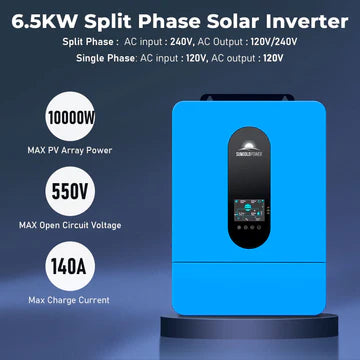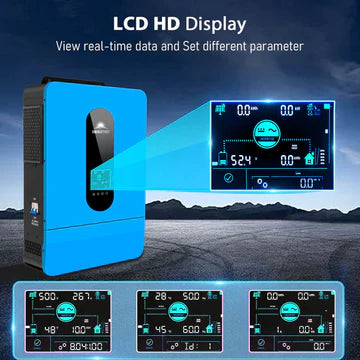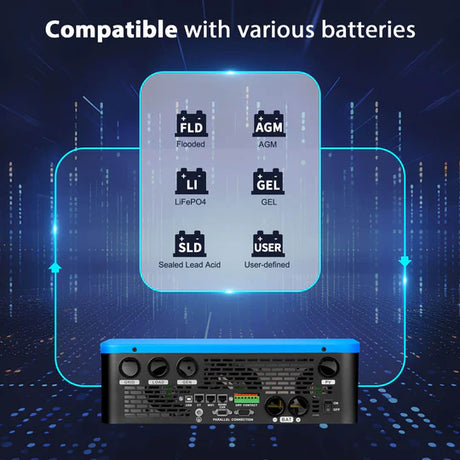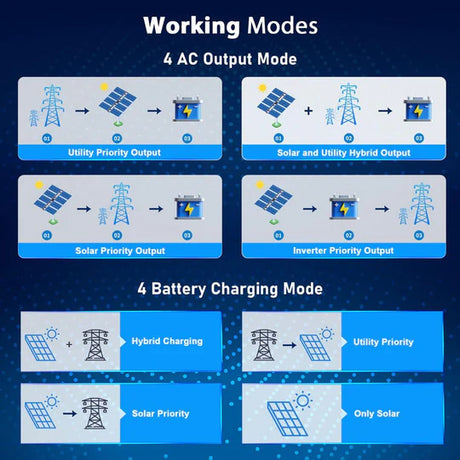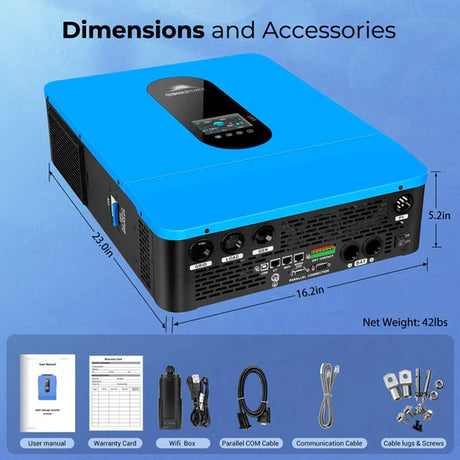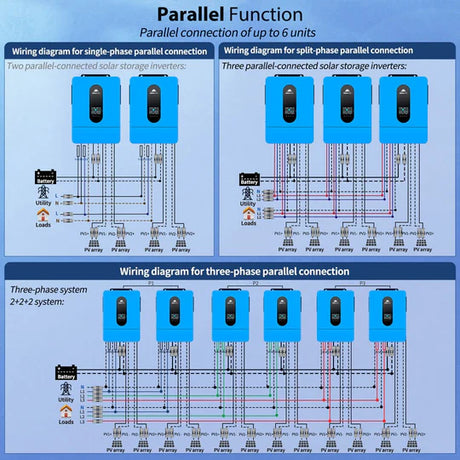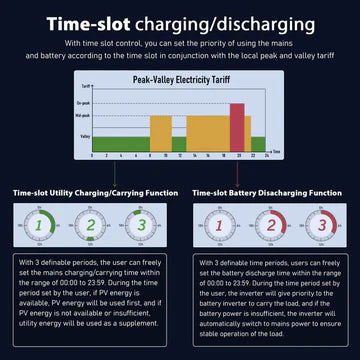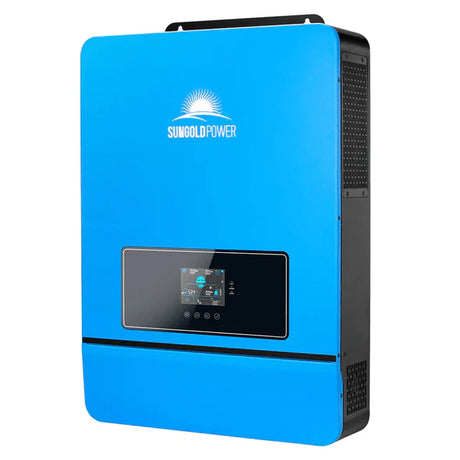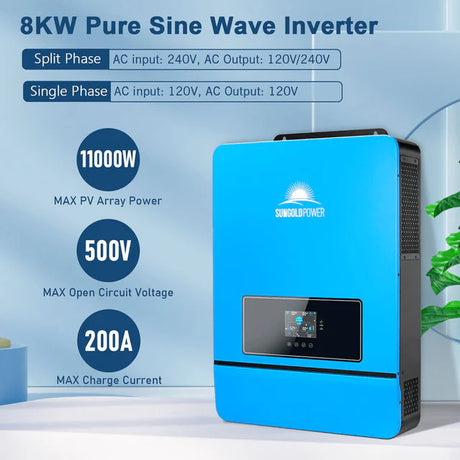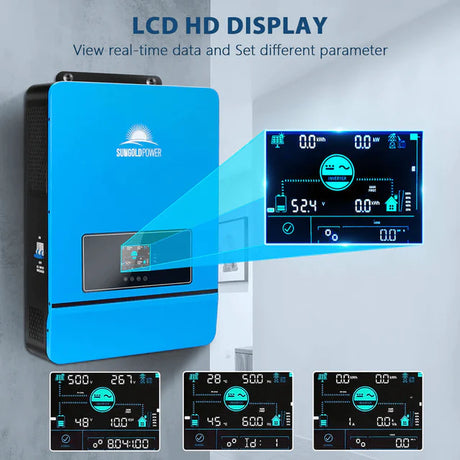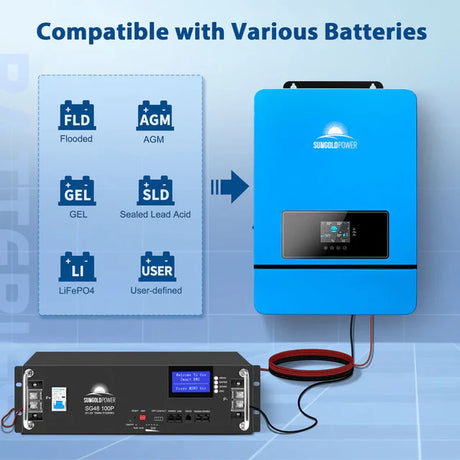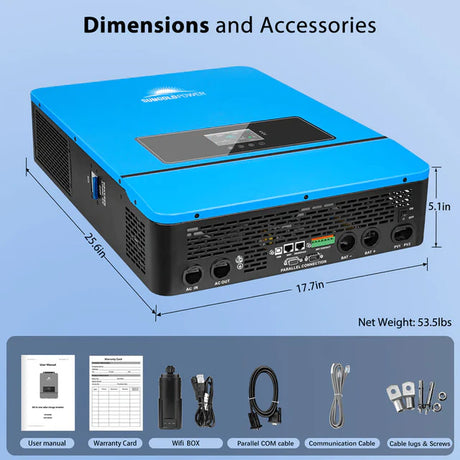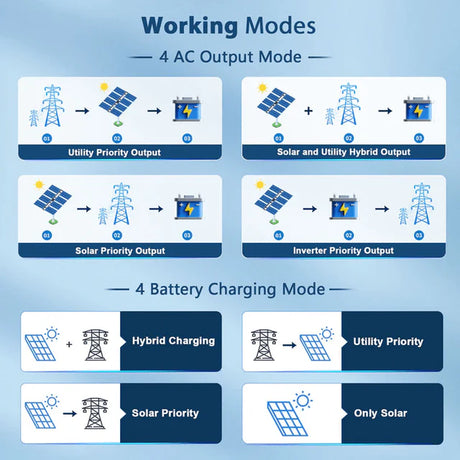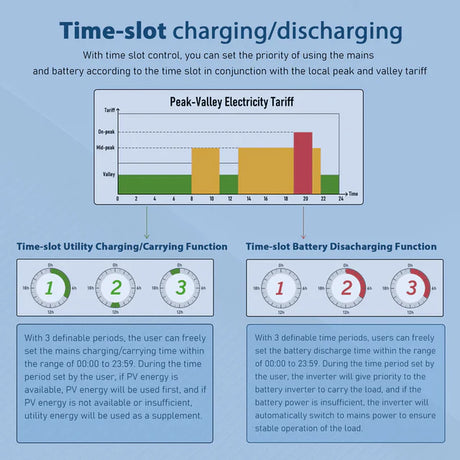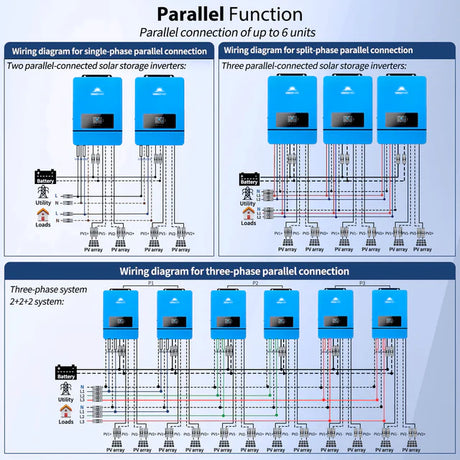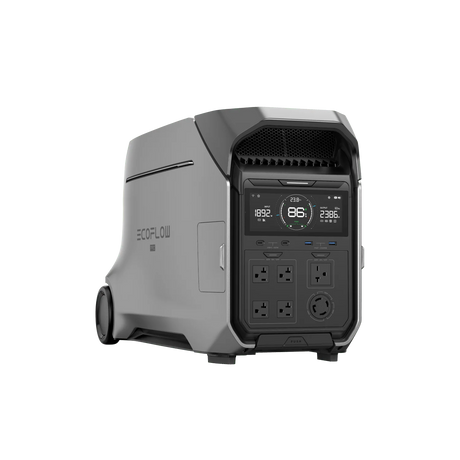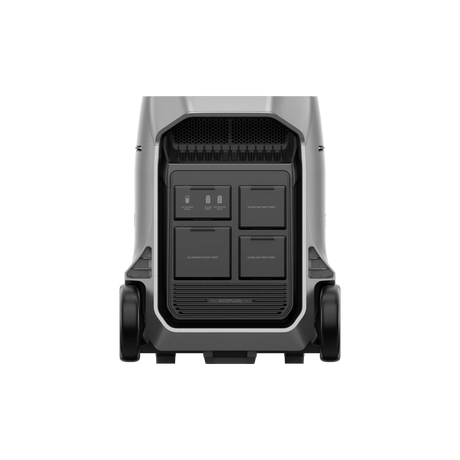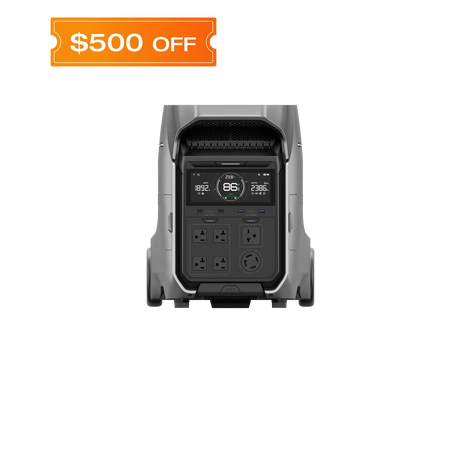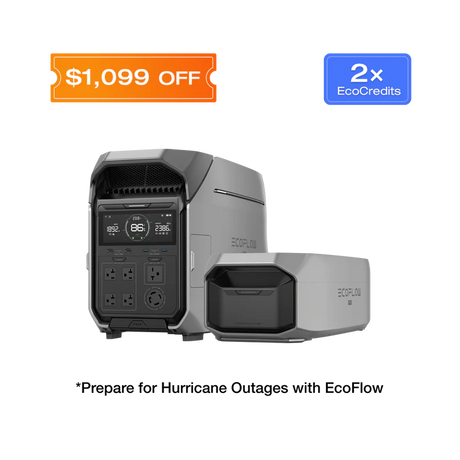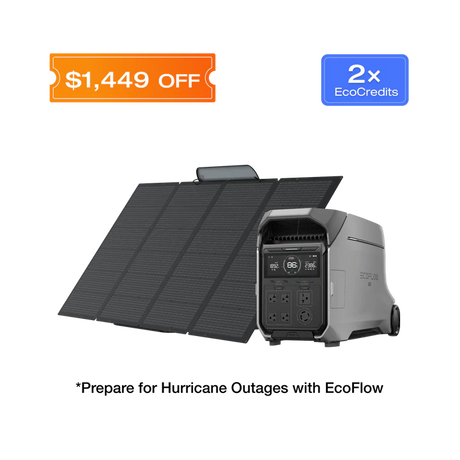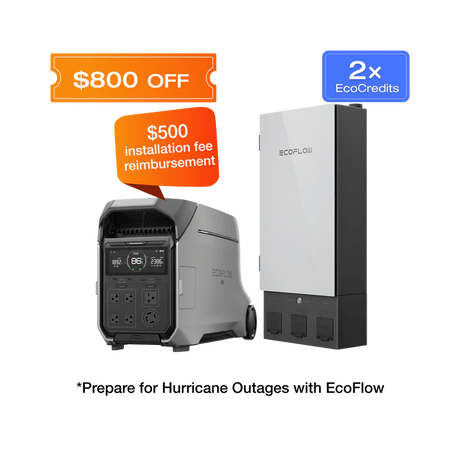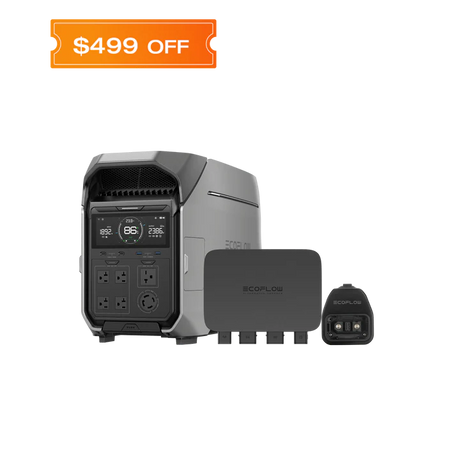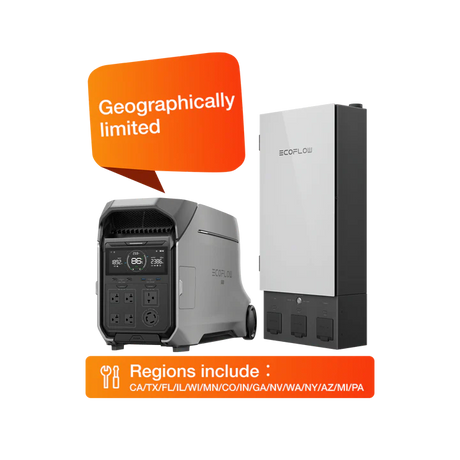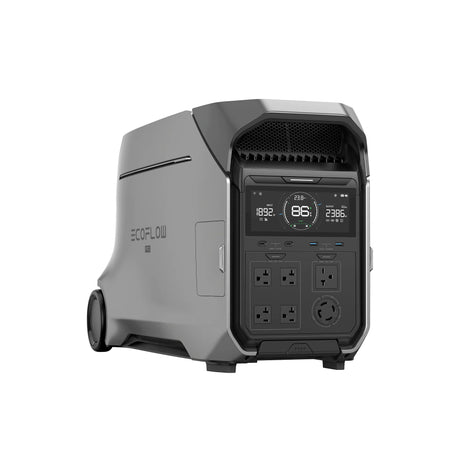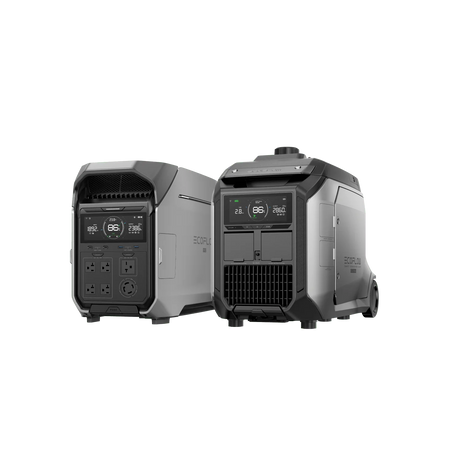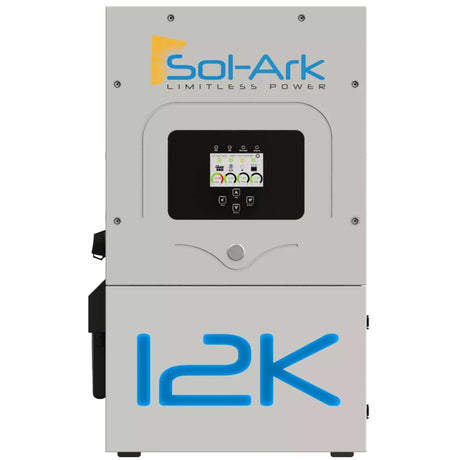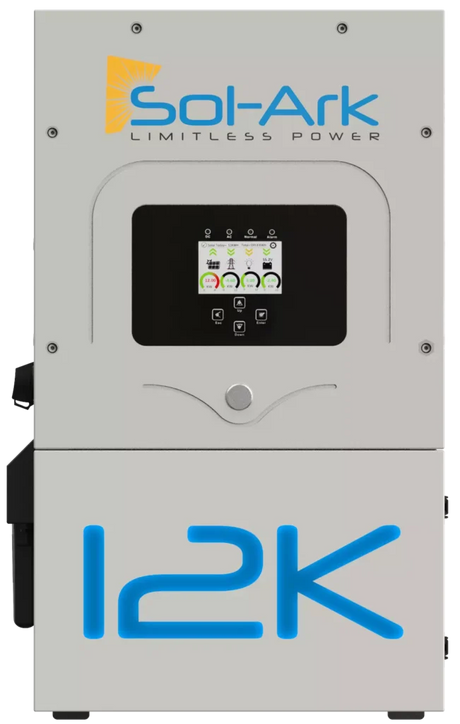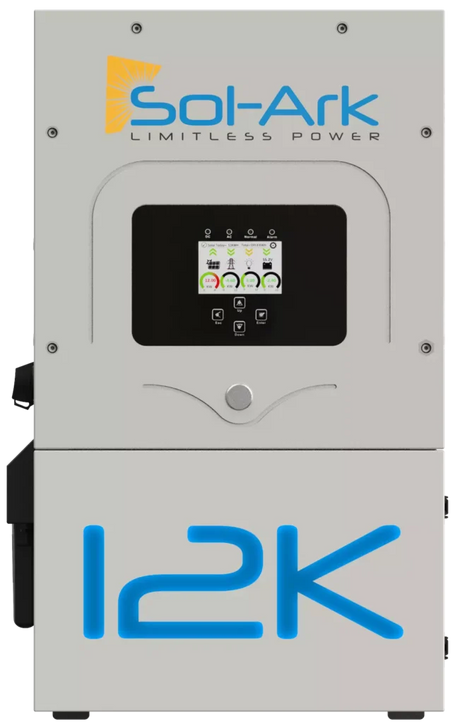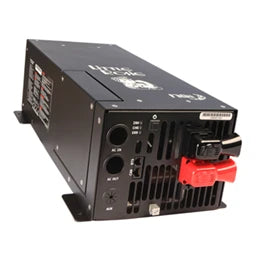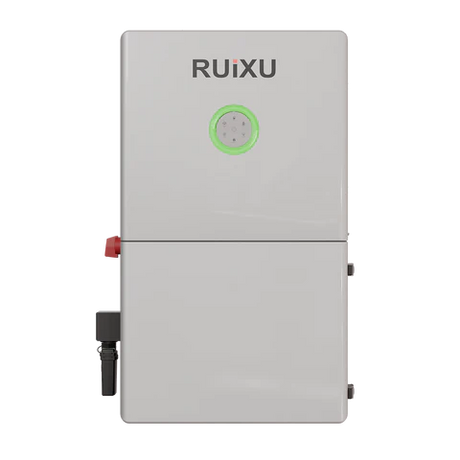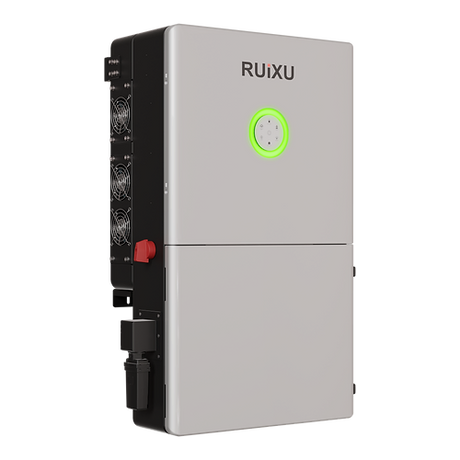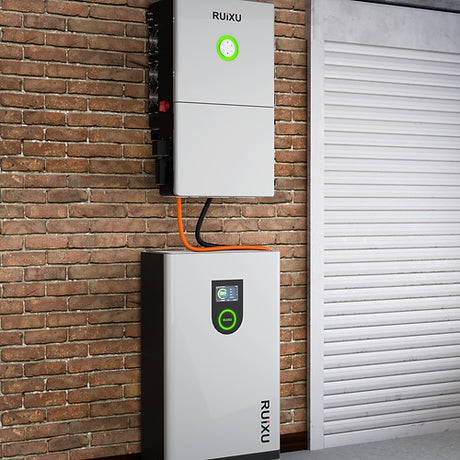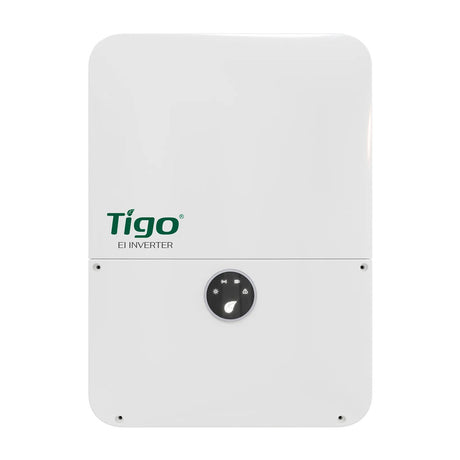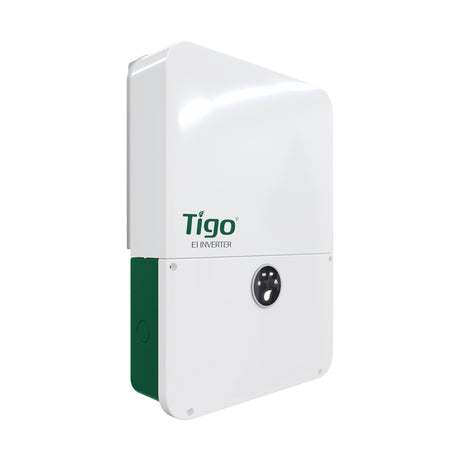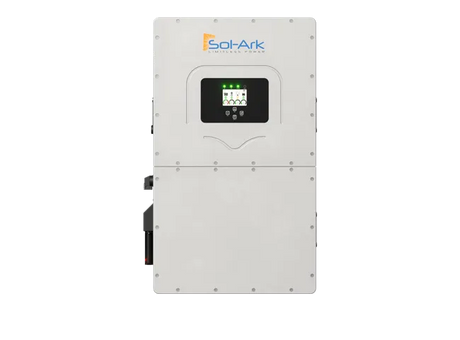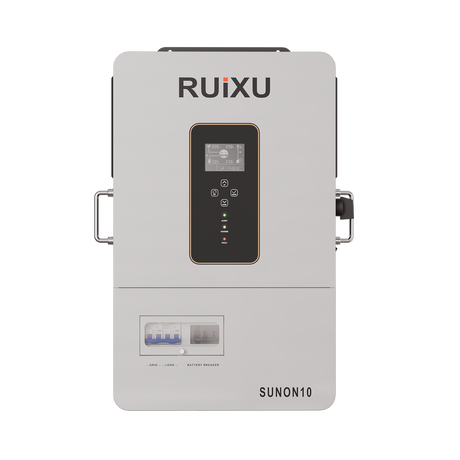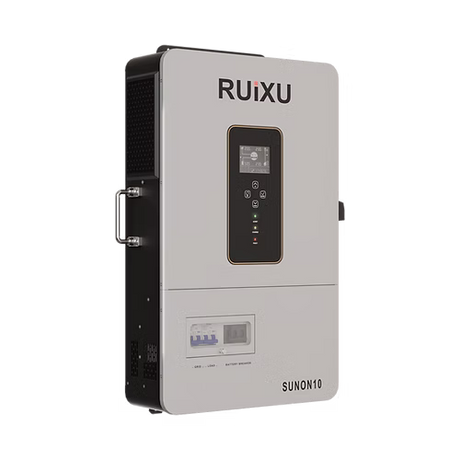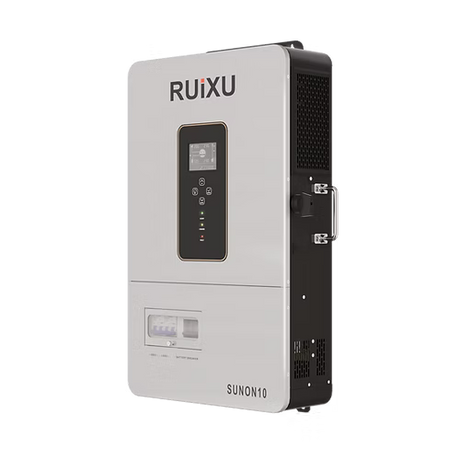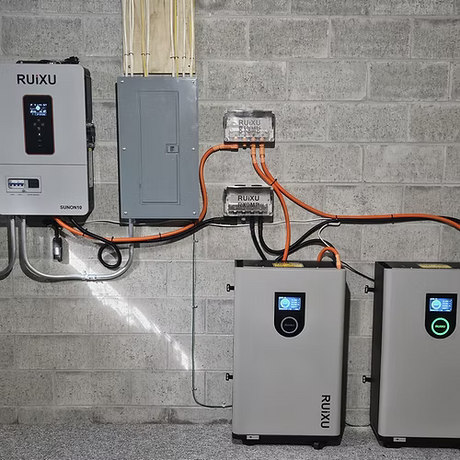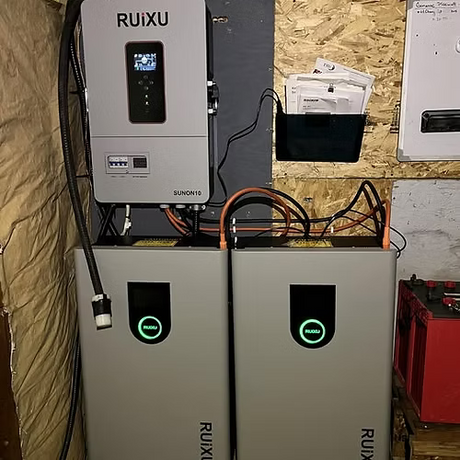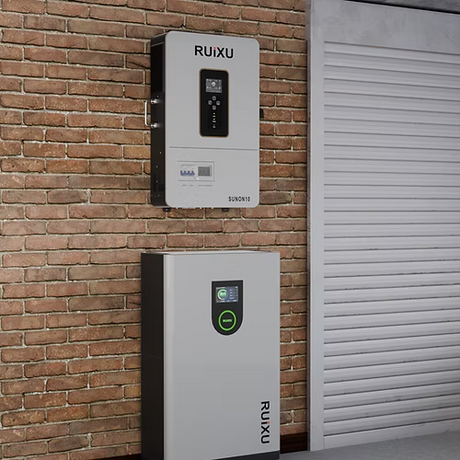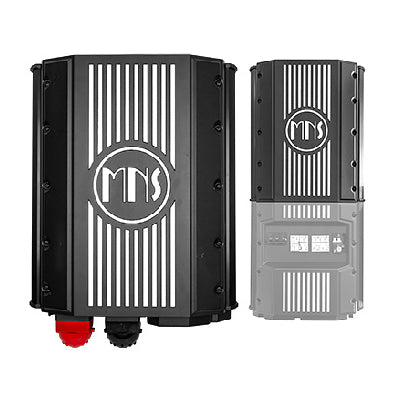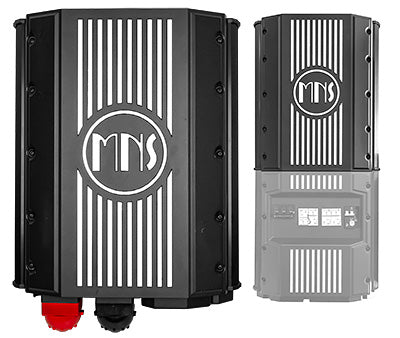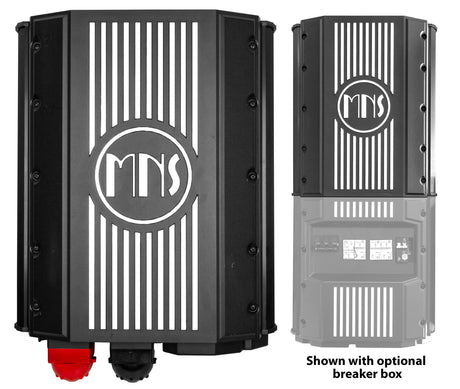- 13% off
Growatt
Growatt 11.4kW Grid-Tie Inverter (V3) | MIN11400TL-XH-US
$1,649.00$1,896.00Unit price /Unavailable Growatt
Growatt 6kW Grid-Tie Inverter (V2) | MIN 6000TL-XH-US
$1,199.00$1,499.00Unit price /Unavailable- 4% off
Growatt
Growatt 10kW Hybrid Inverter | SPH 10000TL-HU-US
$2,299.00$2,399.00Unit price /Unavailable Growatt
Growatt 7.6kW Grid-Tie Inverter | MIN 7600TL XH-US
$1,259.00$1,599.00Unit price /UnavailableMidnite Solar
$5,150.00$5,499.00Unit price /UnavailableGrowatt
Growatt 3kW Stackable Off-Grid Inverter | SPF 3000TL LVM-48P
$749.99$999.99Unit price /UnavailableGrowatt
Growatt 12kW Split Phase Off-Grid Inverter UL 1741 Certified | SPF 12000KT DVM-US
$2,399.00$2,599.00Unit price /Unavailable- 15% off
SunGold
SunGold Power 10KW 48V Split Phase Solar Inverter
$1,690.00$1,980.00Unit price /Unavailable - Up to 11% off
Sol-Ark
From $6,250.00$6,999.00Unit price /Unavailable - 16% off
- 9% off
- 11% off
- 13% off
SunGold
SunGold Power 8KW 48V Split Phase Solar Inverter
$1,550.00$1,790.00Unit price /Unavailable - 11% off
- Up to 22% off
EcoFlow
EcoFlow DELTA Pro 3 Portable Power Station
From $2,899.00$3,699.00Unit price /Unavailable - Up to 19% off
Sol-Ark
From $4,850.00$5,999.00Unit price /Unavailable Midnite Solar
$1,699.00$2,320.00Unit price /Unavailable- 23% off
Ruixu
$3,299.00$4,299.99Unit price /Unavailable - 16% off
Tigo
Tigo EI 11.4W Hybrid Inverter — TS4 & Battery Ready | ATS-200A
$2,510.00$2,999.00Unit price /Unavailable - 7% off
Tigo
Tigo EI 7.6kW Hybrid Inverter — TS4 & Battery Ready | ATS-200A
$2,099.00$2,246.99Unit price /Unavailable - 7% off
Ruixu
RUiXU Single/Split-Phase Off-Grid Inverter | SUNON10 | 10kW | UL1741
$1,759.00$1,899.00Unit price /Unavailable - 25% off
Midnite Solar
Midnite Solar Rosie Inverter | 7000W Output | 48V 120/240V Split Phase | American Made
$3,262.50$4,350.00Unit price /Unavailable
What Is an Inverter?
As one of the key solar system components, an inverter is responsible for solar power conversion. Namely, solar energy doesn’t produce electricity in a form that can power your appliances. That’s what inverters are for—they change the direct current (DC) power from the panels into alternating current (AC) power you can use in your home.
Different Types of Inverters
Here are the three most common types of photovoltaic inverters:
String inverters: With one centralized inverter, this is the standard type. It’s most commonly used for panels that face the same direction and aren’t in the shade of a chimney or nearby trees.
Microinverters: These are small devices built into each panel in the system to make them independent from each other. Even if one panel is in the shade, a microinverter allows the one next to it to soak up sunlight at full capacity.
Power optimizers: These combine the previous types—they have an optimizer in every panel, but they send the current to a central inverter.
4 Key Benefits of Using Inverters
The main benefits of using inverters include long lifespan, reliability, safety, and efficiency.
Let’s explore them in more detail:
#1. Long Lifespan
High-quality solar inverters can last ten to fifteen years, depending on the brand, model, and maintenance. Given their key role, you can have peace of mind knowing your system will keep running smoothly, saving you money and delivering clean energy for years.
#2. Reliability
A solar inverter does much more than convert DC into AC—it minimizes the risks of system malfunctions and power outages. In fact, many modern inverters allow you to track energy production, system health, and performance metrics. This way, you can identify issues before they become major problems.
#3. Safety
Thanks to an inverter, the energy your solar panels generate is safe for use in your home. Additionally, an inverter can identify faults like short circuits and shut the system down to protect its other components and prevent electrical hazards.
#4. Efficiency
High-quality inverters can significantly improve solar panel efficiency, making this renewable energy solution worth your money. They use maximum power point tracking (MPPT) technology to ensure panels extract as much energy as possible, even during changing weather conditions.
How to Choose the Right Inverter for Your Needs
To choose the right solar inverter for your home, you need to consider several factors, including price, system size, type of solar panels, your location, and your energy needs.
Let’s take a closer look at each factor:
#1. Price
You should start by defining your budget, as solar inverter prices vary depending on the type. For example, string inverters are more affordable than microinverters, but they’re also less efficient in case of shading. Still, there’s no single right choice—you need to consider your priorities, whether it’s upfront cost or long-term performance.
#2. Size of the Solar Energy System
Different inverters are suited for different capacities, which is why the size of your system plays an important role in your choice. The larger the system, the more powerful the inverter you’ll need to convert the increased DC power into usable AC.
#3. Type of Solar Panels
The type of solar panels determines your system’s efficiency level and electrical characteristics and thus impacts your choice of an inverter. For instance, higher voltage panels typically require inverters that can handle higher DC power. Similarly, panels prone to shading usually need either microinverters or power optimizers to maximize their performance.
#4. Energy Needs
Your energy needs determine the panels you choose and, by extension, the inverter that suits them best. Let’s say you want to store extra energy for later use. In this case, a solar inverter with a battery, also known as a hybrid inverter, might be the best choice. The same goes for off-grid solar systems, where the inverter connects directly to the solar battery.
Inverters FAQ
#1. What’s the best solar inverter?
The best solar inverter depends on your energy needs, budget, size of your system, and type of panels. However, the most popular choices include the EG4 12000XP and EG4 6000XP Off-Grid Inverters, as well as the EG4 18KPV Hybrid Inverter.
#2. Can solar inverters work without a battery?
Solar inverters can work without a battery. In fact, many solar systems, especially those tied to the grid, don’t include batteries. They work by drawing the energy from or sending it to the grid.
#3. Are solar inverters weatherproof?
Solar inverters aren’t completely weatherproof, although they’re designed to withstand different weather conditions. Whether an inverter can be installed outdoors depends on its enclosure rating—a system defining the level of protection an inverter’s casing offers against the intrusion of liquids and solid objects.
#4. How do I know if my solar inverter is working properly?
To know if your solar inverter is working properly, you need to monitor its LED or display indicators, check energy output, pay attention to unusual sounds, and inspect for error codes and damage.
#5. Do your solar inverters come with a warranty?
Yes, solar inverters typically come with a warranty that ranges between five and twelve years, depending on the brand and model. You may even get an extended warranty for an additional cost from some providers.
#6. Can a solar inverter be on all the time?
A solar inverter can be on all the time, as long as there’s sunlight to convert energy or a connected power source such as a battery. Inverters consume minimal energy when idle, so there’s no need to turn them off, especially since that could affect system performance.

